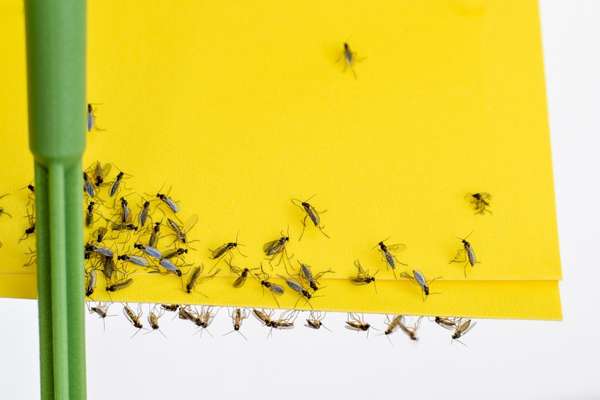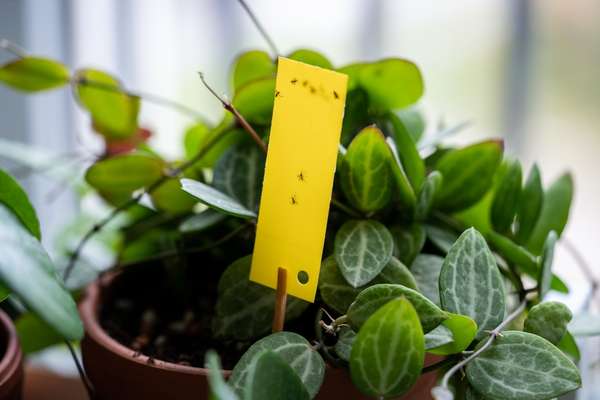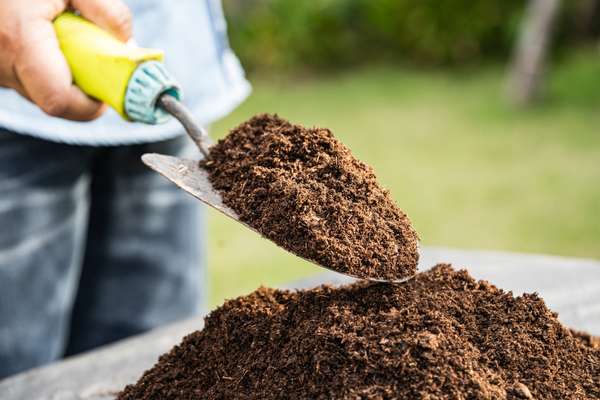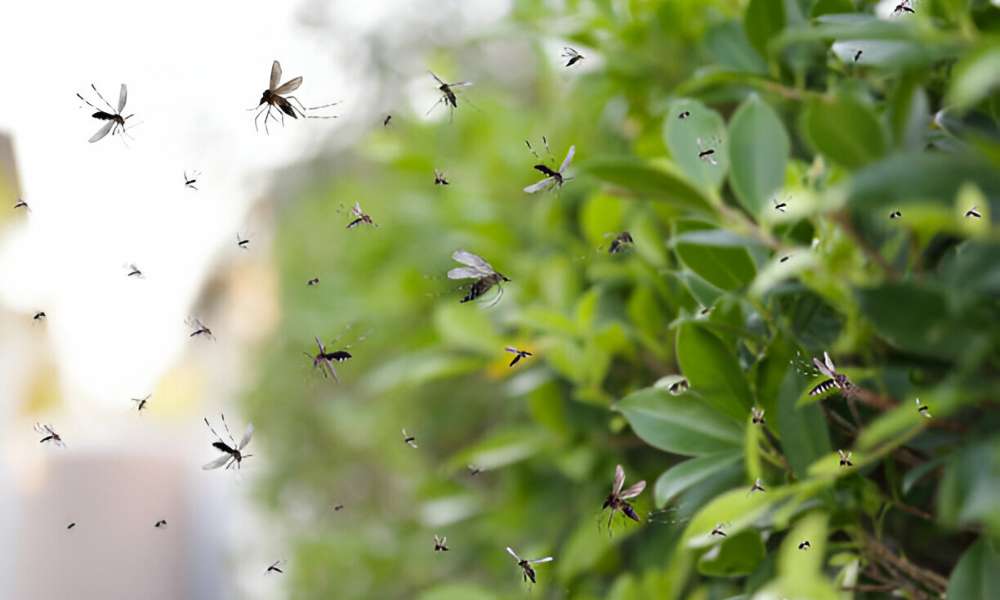Getting rid of gnats in your backyard can transform your outdoor space into a serene, gnat-free haven. If you’re dealing with these pesky insects, understanding how to get rid of gnats in the backyard is crucial. By implementing effective strategies, you not only enhance your backyard’s usability but also protect plants and reduce the risk of gnat-borne irritations. This guide will walk you through practical steps to eliminate bugs, making your backyard enjoyable once again. Discover why it’s important to address this issue and how easy it can be to reclaim your outdoor space from these tiny nuisances.
How Do I Know If I Have A Gnat Problem?
Identifying a gnat problem typically involves observing the presence of small flying insects in and around your home. Gnats are tiny, delicate flies that are often attracted to moisture and decaying organic matter. They can be found near houseplants, fruit, or in damp areas like sinks and drains. If you notice these small insects hovering around your kitchen, bathroom, or indoor plants, it may indicate a gnat infestation.
Are Gnats Harmful To Humans?
Gnats are generally not harmful to humans in terms of causing serious health issues or transmitting diseases. However, their presence can be quite annoying and disruptive, especially when they swarm around food or beverages. Some people may also experience mild skin irritation or allergic reactions from gnat bites. In rare cases, certain species of bugs can carry pathogens that may cause infections if they come into contact with open wounds.
Can I Use Household Items To Get Rid Of Gnats?
Yes, there are several household items that can be effective in getting rid of gnats. One common method is to create a vinegar trap by mixing apple cider vinegar with a few drops of dish soap in a shallow dish. The gnats will be attracted to the vinegar but will get trapped in the soapy solution and drown. Another option is to use a mixture of water and lemon juice sprayed around areas where bugs are present, as the citrus scent repels them.
Homemade Gnat Traps

Creating homemade gnat traps is an effective and eco-friendly way to get rid of gnats in the backyard. One popular method involves using simple household items like sugar, water, and apple cider vinegar. By combining these ingredients in a jar and covering it with plastic wrap punctured with small holes, you create an irresistible trap for gnats. The sweet smell attracts them, and once inside, they can’t escape. This method is not only cost-effective but also avoids the use of harmful chemicals, making it safe for both pets and children. Regularly emptying and refreshing the traps will help maintain their effectiveness in reducing the gnat population in your backyard.
Using Vinegar And Dish Soap

Integrating vinegar and dish soap provides an eco-friendly strategy to manage pesky gnat invasions without compromising on effectiveness. By leveraging these household items creatively, you can maintain a pest-free backyard and living space effortlessly while safeguarding the ecosystem from harmful chemicals commonly found in commercial insecticides.
Preventive Measures

1. Keeping Your Backyard Clean
To effectively get rid of gnats in the backyard, maintaining a clean environment is essential. Gnats are attracted to decaying organic matter, so regularly raking leaves, removing fallen fruits, and trimming overgrown vegetation can significantly reduce their population. By keeping your backyard tidy, you minimize the breeding grounds for these pests, making your outdoor space less inviting to bugs. Regularly sweeping patios and decks also helps eliminate potential nesting areas, ensuring that your backyard remains a pleasant place to relax and enjoy.
2. Proper Waste Disposal
Proper waste disposal plays a crucial role in controlling gnat populations. Gnats are often drawn to garbage and compost bins, where they can find ample food sources. To get rid of gnats in the backyard, ensure that all waste is securely covered and that garbage bins are tightly sealed. Regularly emptying and cleaning these bins can prevent gnat infestations. Compost piles should be maintained properly by turning them frequently and keeping them covered. These measures will reduce the likelihood of bugs thriving in your backyard, helping you maintain a cleaner and more enjoyable outdoor environment.
3. Water Management
Effective water management is key to eliminating gnats in the backyard. Gnats thrive in moist environments, so it’s important to address any areas where water tends to accumulate. Regularly check for and fix any leaks in hoses, sprinklers, or outdoor faucets. Ensure that gutters and downspouts are clean and functioning properly to prevent water from pooling. Additionally, avoid overwatering plants and ensure that pots have proper drainage. By managing water effectively, you can significantly reduce the breeding sites for gnats, making your backyard a more comfortable and gnat-free zone.
Plants That Naturally Repel Gnats

Incorporating plants that naturally repel gnats is an excellent way to get rid of gnats in the backyard while enhancing its aesthetic appeal. Certain plants, such as lavender, marigolds, and basil, emit scents that gnats find unpleasant. Planting these around your backyard not only helps to keep bugs at bay but also adds beauty and fragrance to your outdoor space. Additionally, these plants can be a sustainable and low-maintenance solution compared to chemical repellents. By strategically placing these gnat-repelling plants, you create a natural barrier that protects your backyard, making it a more enjoyable environment for you and your family.
Improving Soil Health

Enhancing soil health in your backyard can significantly reduce gnat populations. Healthy soil promotes strong plant growth, which can deter gnats from congregating around weak or dying plants. To improve soil health, consider incorporating organic matter such as compost or aged manure into the soil. This not only enriches the soil with essential nutrients but also promotes beneficial microbial activity, creating an environment less hospitable to gnats.
Managing Standing Water

One of the primary breeding grounds for gnats is standing water. By eliminating sources of standing water in your backyard, you can effectively reduce gnat populations. Regularly check for areas where water may accumulate, such as clogged gutters, saucers under potted plants, or low-lying areas prone to puddling. Proper drainage and regular maintenance of water features can help prevent bugs from laying their eggs and multiplying.
Sustainable Gardening Practices

Adopting sustainable gardening practices not only benefits the environment but also helps control gnat populations naturally. Avoiding the use of chemical pesticides and opting for organic alternatives can preserve beneficial insects that prey on gnats, such as predatory mites and nematodes. Additionally, planting a diverse range of vegetation can disrupt gnat breeding cycles and create a more balanced ecosystem in your backyard.
Debunking Popular Myths
One popular myth that deserves debunking is the belief that you need a large backyard to play backyard baseball. In reality, all you need is a bit of open space and some creativity to set up a makeshift diamond. Whether it’s a small patch of grass or even a paved driveway, there are endless possibilities for creating your own baseball field.
The Final Thought
Dealing with gnats in your backyard can be a frustrating experience, but it is certainly manageable with the right approach. By implementing a combination of preventative measures and natural remedies, you can effectively control and eliminate these pesky insects. Regular maintenance of your outdoor space, proper sanitation practices, and strategic use of traps or repellents can all contribute to a gnat-free environment. Remember to stay vigilant and consistent in your efforts to prevent their return. With patience and persistence, you can enjoy your outdoor space without the nuisance of gnats buzzing around. Take action today to reclaim your backyard from these unwanted pests.
